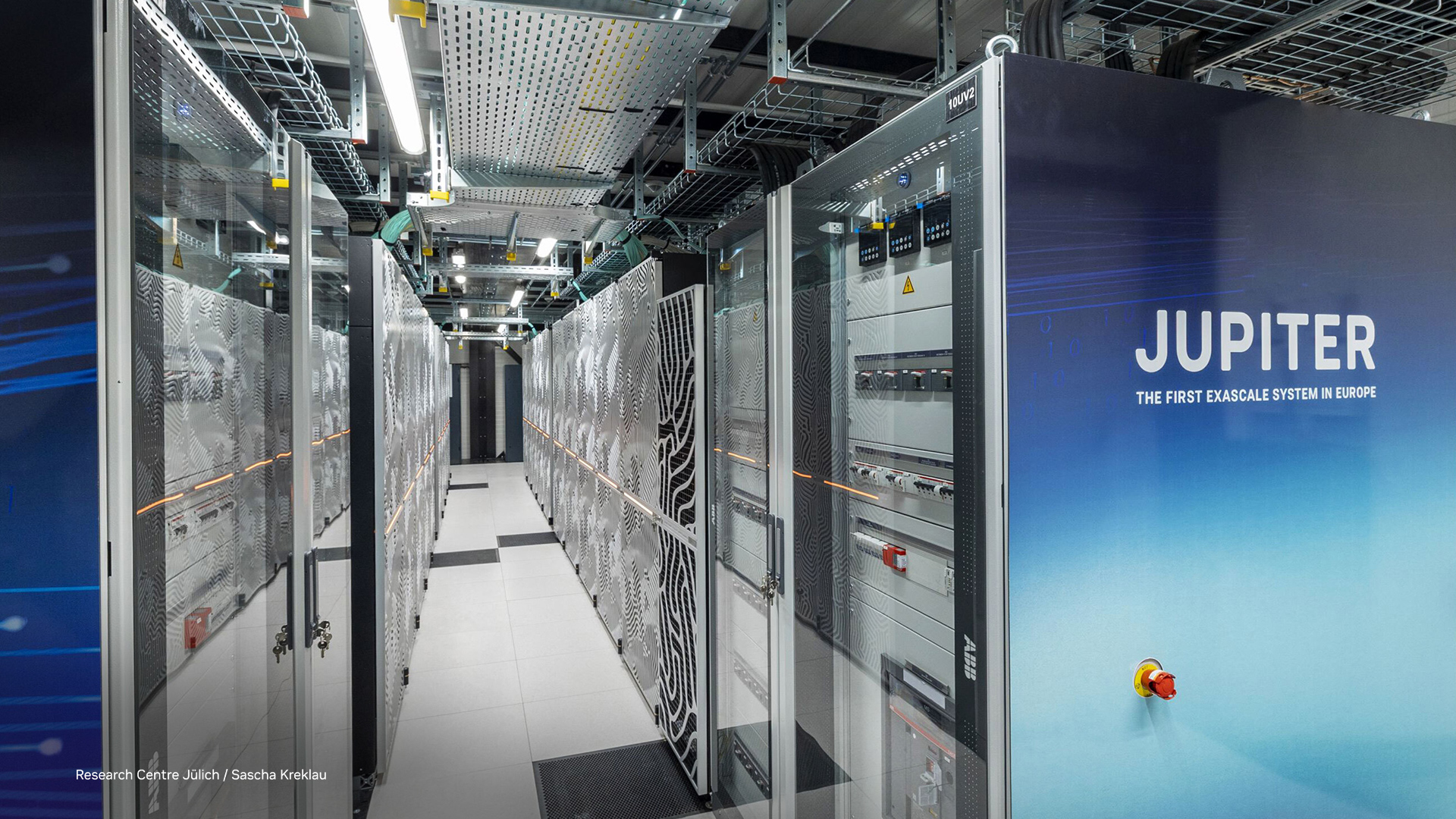Nvidia has introduced Jupiter, which it claims to be Europe’s fastest and most energy-efficient supercomputer, powered by the Nvidia GH200 Grace Hopper Superchip and expected to soon deliver 1 quintillion FP64 operations per second.
Housed at Germany’s Jülich Supercomputing Centre, and owned by the EuroHPC Joint Undertaking, Jupiter is poised to become Europe’s first exascale system, delivering a 2x performance boost over the next-fastest platform for AI and high-performance computing (HPC) workloads.
Built in collaboration with Eviden, using its BullSequana XH3000 liquid-cooled architecture, Jupiter comprises nearly 24,000 Nvidia GH200 chips, interconnected via the Nvidia Quantum-2 InfiniBand platform. It’s projected to achieve over 90 exaflops of AI performance.
Among the top five supercomputers on the TOP500 list, Jupiter is the most energy efficient, delivering 60 gigaflops per watt.
Unlocking European Scientific Discovery
Jupiter is designed to accelerate breakthroughs in:
- Climate and weather modeling via Nvidia’s Earth-2 platform
- Quantum computing research with CUDA-Q and cuQuantum
- Biomedical and drug discovery using the Nvidia BioNeMo platform
- Digital twins and engineering simulations with PhysicsNeMo and Nvidia Omniverse
Voices from the Partnership
Jensen Huang, Founder and CEO, Nvidia:
“In partnership with Jülich and Eviden, we’re building Europe’s most advanced AI supercomputer to supercharge scientific discovery and industrial innovation.”
Anders Jensen, Executive Director, EuroHPC Joint Undertaking:
“Jupiter is a giant leap for Europe, boosting sovereignty and foundational research in areas like climate and biomedical innovation.”
Thomas Lippert, Co-Director, Jülich Supercomputing Centre:
“Jupiter is advancing frontier research by enabling foundation model training and high-performance simulations.”
Kristel Michielsen, Co-Director, Jülich Supercomputing Centre:
“It’s a game-changer for hybrid quantum-HPC computation.”
Emmanuel Le Roux, SVP, Eviden (Atos Group):
“Delivering this exascale system in under nine months showcases Europe’s HPC leadership.”
Open for Access
German and European researchers are now invited to apply for access to Jupiter to accelerate innovation across science and industry.


